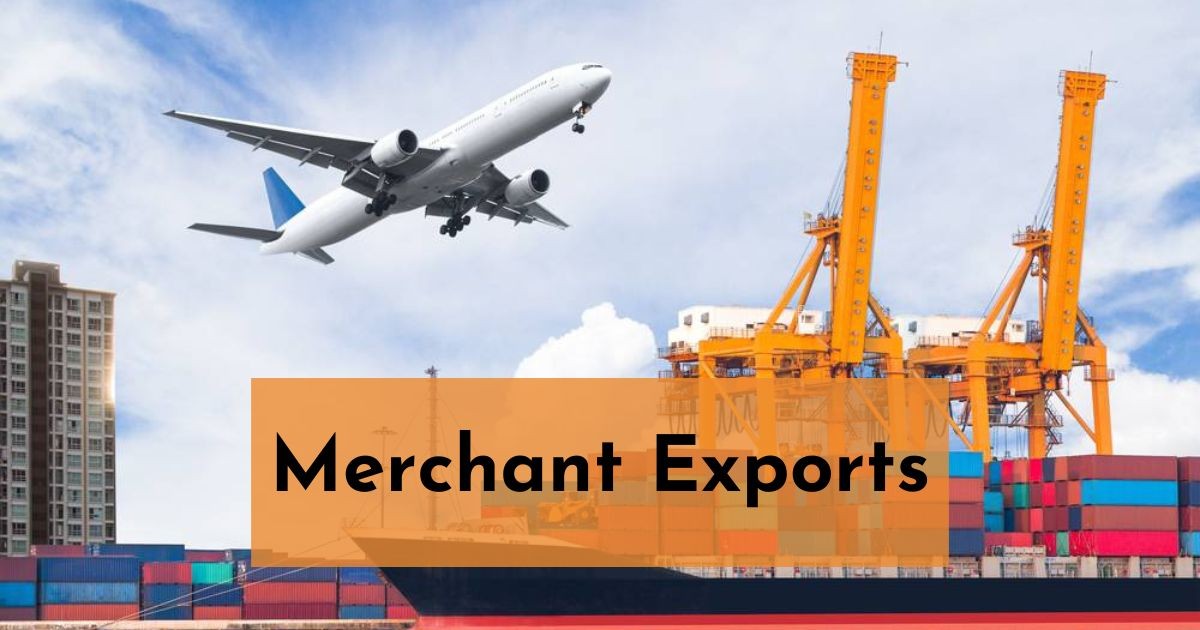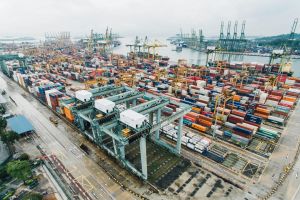All about Merchant Exports: A Comprehensive Guide

Trade across borders is facilitated by Merchant Export Finance, an essential component of international trade. The purpose of this blog is to examine merchant exports, their importance in the global marketplace, and how to conduct them successfully.
Understanding Merchant Exports:
In merchant exports, goods are purchased from one country and sold to another country without being significantly changed. A merchant exporter acts as an intermediary between foreign suppliers and buyers in international Trade. Global trade is greatly facilitated by them, as they provide links between producers and consumers in different countries.
What is the significance of Merchant Exports?
Market Diversification:
Businesses can diversify their customer base and expand their markets by exporting goods. Companies can mitigate risks associated with economic fluctuations in specific regions by selling to different countries and reducing their reliance on a single market.
Economic Growth and Job Creation:
Export Financing and employment opportunities are generated by merchant exports, which contribute to an economy's growth. A company that focuses on exporting often expands its operations to meet foreign market demand, creating jobs and increasing production at home.
Enhanced Competitiveness:
Businesses are encouraged to become more competitive by engaging in international trade through merchant exports. Companies are forced to innovate and improve their production processes due to international competition.
Access to Resources:
Countries benefit from merchant exports by gaining access to resources and products not readily available at home. Access to a broad range of goods contributes to the advancement of technology and increases the standard of living.
What is the role of a merchant exporter?
International Trade instruments are central to the role of merchant exporters. Mercantile exporters facilitate the movement of goods across borders as intermediaries between producers and buyers. Products with export potential are identified by these companies, acquired from local producers and manufacturers, then sold to Trade Finance service without extensive processing or alteration. A merchant exporter plays the following key roles:
1. Identifying Exportable Products:
In order to identify products that are in demand in foreign markets, merchant exporters play an important role. Market research is conducted to determine whether specific products are viable for export in different countries.
2. Linking Producers and Buyers:
A merchant exporter's primary role is to connect producers and buyers on the international market. By facilitating Trade instruments between countries, they ensure a seamless exchange of goods.
3. Risk Management:
International trade involves a variety of risks for merchant exporters. There are many risks associated with currency exchange rates, regulatory changes, political instability, and demand-supply uncertainty. To minimize their business impact, they manage these risks strategically.
4. Negotiation and Pricing:
In order to remain competitive in the international market, merchant exporters negotiate prices with suppliers and buyers. To maintain margins and keep prices attractive to foreign buyers, they must maintain a balance.
5. Compliance and Documentation:
There are numerous legal and regulatory requirements for merchant exporters in both exporting and importing nations. They produce export paperwork, including invoices, packing lists, certificates of origin, and other customs-related documents, among other things.
6. Quality Control:
The quality of their goods must be upheld by merchant exporters. Regular quality inspections will guarantee that the products are up to international standards and satisfy the requirements of overseas buyers.
7. Logistics and Shipping:
Merchant exporters are responsible for coordinating logistics and shipping of goods. Transport, customs clearance, and delivery on time and in good condition are all handled by these companies.
8. Market Promotion:
The merchant exporter actively promotes his or her products in foreign markets. To reach potential buyers and create awareness about their products, they attend trade shows, use digital marketing strategies, and establish distribution networks.
9. Payment and Finance:
Managing the financial aspects of international transactions and negotiating payments with foreign buyers is the responsibility of merchant exporters. It is essential that they have experience dealing with international payment methods, letter of credit, and currency conversions.
10. After-Sales Support:
It is crucial to build a strong reputation in foreign markets by providing after-sales support. To maintain customer satisfaction, merchant exporters can assist with warranty issues, replacements, or repairs.
Key Steps in Merchant Export Operations:
1. Market Research:
Conducting comprehensive market research is the first step in merchant exports. In order to do this, it is necessary to identify potential markets, understand customer preferences, analyze competition, and determine the demand for the product in the target country.
2. Product Selection:
Merchant exporters select products that are likely to perform well in their target markets once the target market is identified. As part of the product selection process, cultural differences and compliance with foreign regulations are taken into consideration.
3. Sourcing Suppliers:
Finding trustworthy suppliers is essential for ensuring the quantity and quality of the chosen products. You need to establish trusting connections with your suppliers if you want to keep your supply chain running smoothly.
4. Legal and Regulatory Compliance:
There are numerous legal and regulatory requirements for merchant exporters in both the exporting and importing nations. You must acquire the required licences and permits in order to abide by international commerce rules.
5. Logistics and Shipping:
The coordination of logistics and shipping is one of the most important aspects of merchant export operations. Transporting goods to foreign markets requires handling documentation, handling transportation, and ensuring timely delivery.
6. Pricing and Payment:
In order to succeed in the international market, you must set competitive prices. Foreign exchange rates and international transaction risks must be considered by merchant exporters when deciding on payment terms.
7. Quality Control:
Maintaining product quality is crucial for earning a solid reputation in foreign markets. Regular quality inspections of the items are carried out to ensure that they fulfil both international standards and client expectations.
8. Market Promotion:
Various marketing and promotional strategies are employed by merchant exporters in order to attract potential buyers. It is common to participate in trade shows, use digital marketing, and establish a strong online presence.
9. Documentation and Customs Clearance:
A complete set of documentation is prepared, including invoices, bills of lading, and certificates of origin. In order to clear customs and enter the importing country smoothly, these documents are necessary.
Conclusion
Merchant exports, which are essential to world trade, support business expansion and economic prosperity. Businesses must recognise the value of merchant exports and take the necessary precautions when undertaking export operations if they want to compete in the cutthroat world of international trade.






